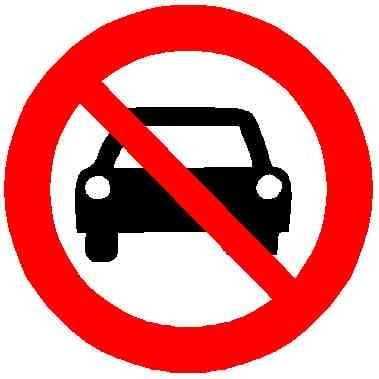Are you looking to get into it because you want a good keyboard that feels good; or do you want to get into it because you like the idea of weird layouts, building your own keyboard, trying different switches, weird color schemes, custom key shapes, or all the other interesting but not typing things you can do. Nothing wrong with that second group, even though you can probably tell from my tone that I don’t see the point myself (if this is you I can’t give good advice so stop reading).
bluGill
- 0 Posts
- 105 Comments

 1·1 day ago
1·1 day agoThanks, I was aware of the model F project but didn’t realize they had anything other than very large layout options. I have 4 original model M’s, (two are broken), but my desk is too small with my work and personal computers. (I tried a keyboard switch, but I gave up using it after typing to the wrong computer one too many times)

 1·1 day ago
1·1 day agoThey use your standard Chinese cherry clone switches. Better than the rubber dome keyboards everyone gets by default, but nothing like a genuine model M. (the other reply linked to a model F which is likely better than the M but I wasn’t aware of that option until now so I’ll have to try it)

 41·2 days ago
41·2 days agoI wish I could get one in a 60% layout. My desk is too small for my big ones.

 3·2 days ago
3·2 days agoOlder systems have been known to use the radiators as the expansion tank. this would not meet modern code but plenty of old systems exist.

 2·2 days ago
2·2 days agothe others have described things well so read them first!
the irs looks at large charitable donations with suspicion because it is easy for a charity to pretend to do good but really just things the donars would do anyway but now they can deduct it. Thus large donars often have to do a match of smalaer donars as the large donation with no small donars suggests only the rich care and so maybe it isn’t really charitable.
remember the above is a factor in some cases but shoud be considered only after you exhaust the other reasons to do this and find they are not enough.

 31·2 days ago
31·2 days agoThere needs to be space someplace in the system since water expands when it warms. Sometimes that space is in the radiators andso bleeding needs to not let all the air out, for this reason you should get maintenance toefix the problem if one exists so they can balance the system.

 28·3 days ago
28·3 days agoLarge parts of the corn palt are prarie and should be grass as far as eye can see. Corn is a grass.
There are many who are pushing rust as a religion tan that turns people off.

 10·5 days ago
10·5 days agoPensions are for life so even if you like to 120 you get something. However they are generally limitited to poor rates of return so if you like a more reasonable life time you had much less money to live on.

 5·5 days ago
5·5 days agoLikely better for the company officers if you switch so they make it better for you too

 2·5 days ago
2·5 days agoSure, lots of other ways. Use some imagination next time you are in the kitchen. So far I haven’t found a better way, but I’ve tried lots of things and I’m open to someone finding something I haven’t yet that is better.
The idea is trucks used for work will by nature need more fuel, but they should not be used where a more efficient car would work
I have long thought that if it is a truck/SUV it is for use in situations where you don’t care about dents and paint scratches and thus those are not factors in the value. Dealers and car rental places would quickly figure out that they cannot legally look for such things, but customers will find a reason to buy a different one and so they would stop leasing or renting trucks/SUVs. They may still lease/rent truck/SUV shaped objects, but they will count as light cars for MPG purposes and so cost a lot more.

 11·7 days ago
11·7 days agoYou also don’t discharge below some amount that I forget. Plus you want some buffer in case you have an emergency (if you go in the ditch a mile from home on that coldest day you better have enough power to keep the heater running until the rescue arrives)
40 miles is what I said, which might give you the typical commute - but it doesn’t leave room for anything else. Lunch errands, after work bowling league, emergencies and so on happen often enough that you really want some buffer and so the 100 mile claimed range is realistically marginal despite only needing less than 40 on the typical day.

 7·7 days ago
7·7 days agoI’ve seen it once, the building was built on a hill, so both ground and 1st had street level entrances on opposite sides.

 4·7 days ago
4·7 days agoI’ve seen B and SB (basement and subbasement) on elevator buttons. Generally those are floors that the public isn’t allowed to go to and I never had the right key to activate them so I don’t know what was there.
I’ve also seen B1 B2 B3 B4 B5 for different basement levels, though I don’t remember which was on top. Those were all parking levels though so no rooms were numbered.

 1·7 days ago
1·7 days agoEveryone I’ve talked to said only charge your EV to 80% to get the maximum battery life. Charging to 100% should only be done if you are going on a long trip - you lose battery life but that is a price paid in 5-10 years while your trip is now.
I’m using black walnut for the sides and cherry for the top/back. The walnut was sourced from a fallen tree on my property a few years back (the tree was small though so if anything goes wrong I won’t have enough have may have to substitute something else). The cherry from a tree my grandpa had cut just before he died. I’m currently cutting up an ash tree that I hope to turn into the neck.
As for bracing, I’m not sure, but probably whatever plans I found online show.
The above is of course the plan, and subject to change as I discover something in it will/cannot work.



Rates are not high. 20 years ago they were higher yet - and people are cheering the historically low rates. However if you don’t remember 20 years ago it is easy to think they are high now when in fact they are probably closer to normal.